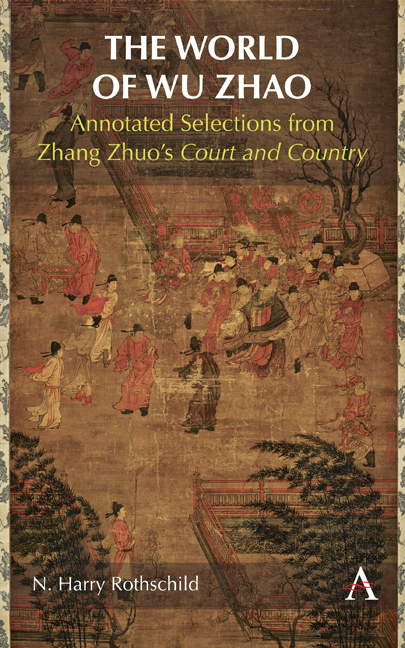Book contents
- Frontmatter
- Dedication
- Contents
- Acknowledgments
- Figures
- Map
- Tables
- Weights and Measures
- Introduction
- Chapter 1 Wu Zhao: her inner palace, her inner circle
- Chapter 2 The culture of the court
- Chapter 3 “Cruel officials”: Wu Zhao’s “teeth and horns”
- Chapter 4 Beyond court and capital: local officials
- Chapter 5 The common people
- Chapter 6 Relationships: men, women, and family in the time of Wu Zhao
- Chapter 7 Generals and military men
- Chapter 8 The frontier and beyond: foreigners and others during Wu Zhao’s reign
- Chapter 9 Religion and the supernatural world
- Chapter 10 Flora, fauna, and the natural world
- Afternote
- Appendix: People and Places
- Notes
- Bibliography
- Index
Chapter 3 - “Cruel officials”: Wu Zhao’s “teeth and horns”
Published online by Cambridge University Press: 15 November 2023
- Frontmatter
- Dedication
- Contents
- Acknowledgments
- Figures
- Map
- Tables
- Weights and Measures
- Introduction
- Chapter 1 Wu Zhao: her inner palace, her inner circle
- Chapter 2 The culture of the court
- Chapter 3 “Cruel officials”: Wu Zhao’s “teeth and horns”
- Chapter 4 Beyond court and capital: local officials
- Chapter 5 The common people
- Chapter 6 Relationships: men, women, and family in the time of Wu Zhao
- Chapter 7 Generals and military men
- Chapter 8 The frontier and beyond: foreigners and others during Wu Zhao’s reign
- Chapter 9 Religion and the supernatural world
- Chapter 10 Flora, fauna, and the natural world
- Afternote
- Appendix: People and Places
- Notes
- Bibliography
- Index
Summary
DONALD WYATT OBSERVED THAT “WU ZHAO’s own propensity for the wanton perpetration of violence against her perceived domestic enemies […] helped clear her path of real and imagined obstructers by the thousands.” Wyatt is right: her “cruel officials” (ku li 酷吏) were an essential part of her political authority, the umbrageous yin that complemented the sunny yang of aesthetes eloquently singing her praises and colorful ceremonies staged to validate her power. Therefore, any effort to scrutinize the dark countenance of the Janus-faced female sovereign needs to examine the modus operandi of these brutal henchmen; they helped Wu Zhao quash her opposition and consolidate power, particularly in the years immediately before and following her establishment of the Zhou dynasty in 690.
Wu Zhao was certainly not the first ruler to ruthlessly deploy strongarms to gain and consolidate power: prior to her reign, records attest to more than a millennium of draconian punishments exacted by countless “cruel officials” throughout early and early medieval Chinese history. Sima Qian began cata-loging the careers of such men in Records of the Grand Historian, the template for later dynastic histories. Explaining his rationale for including biographies of such individuals, he wrote, “When the people turn their backs on what is basic and are too ingenious, they ravage traditions and play with the laws, so that even the good among them cannot be transformed and only a thorough severity can return them to good order. Thus, I wrote ‘The Cruel Officials.’” While acknowledging their drawbacks, the celebrated annalist recognized, despite (or, arguably, because of) their cruelty and violence, a certain con-structive value, a political utility, in the actions of these men. Toward the end of their collective biography, the Grand Historian observed, “The virtues of these ten men can be taken as models, their vices as a warning. These men, by their schemes and strategies, their teaching and leadership, restricted wickedness and ended evil. Although harsh, these men did what their duty prescribed.” There is a clear recognition, even a begrudging appreciation, for the guiding role that such individuals play in fostering order through draconian measures, extirpating evil to help stabilize the empire.
- Type
- Chapter
- Information
- The World of Wu ZhaoAnnotated Selections from Zhang Zhuo's <i>Court and Country</i>, pp. 71 - 86Publisher: Anthem PressPrint publication year: 2023



